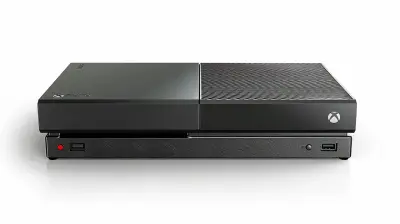Tips for Providing Constructive Feedback in Early Access Games
18 December 2024
So, you've just purchased an early access game, fired it up, and found yourself knee-deep in a world full of potential. You see the spark, right? It’s like discovering an unpolished gem that could shine brighter with just a little love and care. But here's the kicker: how you share your thoughts with the developers could make all the difference. How do you give feedback that isn't just helpful but also keeps the devs motivated to make the game even better?
Don't stress—I’ve got your back! Let’s dive into some tips for providing constructive feedback in early access games that will make you the hero developers didn’t know they needed.
What is "Constructive Feedback," Anyway?
Okay, before we get ahead of ourselves, let’s nail down what "constructive feedback" means. In plain English, it’s feedback that’s useful, actionable, and given in a way that doesn't make the recipient want to throw their keyboard out the window.Imagine someone telling you, “Your cooking is bad.” Ouch, right? That’s unhelpful and kind of rude. But what if they said, “Hey, I think adding a pinch of salt might really bring out the flavor in this dish!” Suddenly, it’s helpful and doesn’t make you feel like you’re failing at life. That’s the vibe we’re going for.
Why Does Feedback Matter in Early Access?
Early access games are like babies learning to crawl before they walk. The developers are still testing, tweaking, and figuring things out. Your feedback could be the compass that helps them navigate toward creating an amazing final product.When you provide thoughtful feedback, you’re not just helping the devs—you’re also investing in a better game for yourself (and everyone else). It’s a win-win. Plus, let’s be honest; it feels pretty cool to know you helped shape a game into its best version.
1. Play the Game Properly Before Speaking Up
Let’s start with the basics: you’ve got to actually play the game before giving feedback. Sounds obvious, right? But hear me out. Spend a decent amount of time exploring the mechanics, story, and features. Dive in like you’re cannonballing into a pool on a hot summer day.Don’t just breeze through it and then drop a comment like, “This game sucks” or “The controls are broken.” That’s like watching the first two minutes of a movie and then harshly judging the entire plot. Instead, give yourself time to understand what’s working and what isn’t.
2. Be Specific, Not Vague
Here’s the thing: vague feedback is about as helpful as a GPS that just says “go that way.” Developers need details. Instead of saying, “The controls are bad,” try something like, “When I press the jump button, there’s a delay before my character actually jumps, and it feels unresponsive.”See the difference? The first comment is just noise, while the second one is a golden nugget of actionable insight. The more detailed you are, the easier it is for developers to pinpoint and fix the issue.
3. Focus on What Works, Too
It’s human nature to zero in on the negatives, but don’t forget to highlight the positives. Tell the devs what you love about the game! Did the art style blow your mind? Were the combat mechanics buttery smooth? Did the soundtrack make you feel like you were in a blockbuster movie?Giving praise works like rocket fuel for developers—it keeps their spirits high and reminds them they’re on the right track. After all, don’t we all want a little pat on the back for a job well done?
4. Use the "Sandwich Method"
Ah, the classic sandwich method. No, we’re not making lunch here—I’m talking about the feedback technique where you sandwich critiques between two positive comments.Example:
- Top Bun (Positive): “I absolutely love the unique crafting system in this game; it’s so creative!”
- Meat (Constructive Criticism): “However, I noticed that the inventory management feels a bit clunky, and it could use a streamlined sorting feature.”
- Bottom Bun (Positive): “Oh, and the world design is absolutely stunning—it feels alive and immersive!”
This approach softens the blow and makes your feedback more palatable (pun totally intended). Nobody likes biting directly into criticism without a little positivity on the side.
5. Stay Respectful—These Devs are Humans, Too
Look, I get it. Sometimes bugs and issues can be crazy frustrating. Your character might randomly fall through the map, or the game might crash at the worst possible moment. But remember, yelling at the devs in all caps isn’t going to do any good. They're not sitting in their evil lairs cackling while they release buggy code. They’re probably overworked and guzzling coffee at 3 a.m., trying to make the game better.So keep your tone respectful. Pretend you’re chatting with a friend who just needs a little nudge in the right direction. A little kindness goes a long way.
6. Offer Solutions, Not Just Problems
If you’re pointing out something you don’t like, try to suggest a potential solution. Think of yourself as part-time problem solver, full-time awesome gamer. For example:- Problem: “The tutorial feels overwhelming; there’s too much information all at once.”
- Solution: “Maybe consider breaking the tutorial into smaller chunks or adding tooltips that explain things as they come up.”
Even if your solution isn’t perfect, developers will appreciate the effort. It shows you’re invested in making the game better, not just throwing tomatoes from the sidelines.
7. Prioritize Issues
Every game has a laundry list of bugs and improvement opportunities. But not all problems are created equal. Figure out what’s really impacting the gameplay experience and start there. Is a game-breaking bug making progress impossible? That should take priority over nitpicky stuff like “This font doesn’t look great.”Think of it like sorting laundry—you wouldn’t start folding socks when there’s a giant stain on your favorite t-shirt, right?
8. Document Your Findings
If you’ve ever submitted a bug report, you know how much easier it is for devs when you provide context. Screenshots, videos, or clear descriptions of how to recreate the issue are pure gold.Instead of saying, “The game crashed,” try something like:
“When I reached Level 4 and used the fireball spell, the game crashed to the desktop. Here’s a video of it happening.”
Boom. You’ve just made a developer’s day.
9. Don’t Take It Personally if Your Feedback Isn’t Implemented
Here’s the reality: not all feedback will make it into the game. Developers have to juggle tons of suggestions, budgets, and priorities. If they don’t act on your feedback, it’s not because they’re ignoring you—it’s probably just not feasible at the moment.Remember, providing feedback is like planting seeds. Some might bloom right away, while others take longer to grow. Be patient!
10. Keep the Community Vibes Positive
If the game has forums, Discord servers, or social media groups, keep the energy upbeat. Toxicity in gaming communities spreads faster than a sneeze in flu season. Be the person who uplifts others and sets the tone for constructive conversations.It’s like the old saying: “Be the player you want to game with.”
Wrapping It Up
Providing constructive feedback for early access games is kind of like being a coach for a sports team. Sure, you’re pointing out areas for improvement, but you’re also cheering them on and helping them reach their full potential.So the next time you dive into an early access title, remember: your words carry weight. Be kind, be clear, and be the player who helps make gaming better for everyone.
all images in this post were generated using AI tools
Category:
Early Access GamesAuthor:

Leandro Banks
Discussion
rate this article
11 comments
Avianna Love
Constructive feedback is like a well-aimed headshot—precise, impactful, and aimed at improvement. Remember, devs are listening; make each word count, and help shape the game into its best version!
April 4, 2025 at 2:43 AM

Leandro Banks
Thank you for the insightful analogy! Precision in feedback truly does have the power to enhance the game and foster collaboration.
Linnea Mercado
This article offers valuable insights into fostering a collaborative environment in early access development. Emphasizing the importance of clarity and specificity in feedback can significantly enhance the game's evolution. However, the nuances of player emotions and expectations deserve further exploration to ensure truly constructive criticism.
March 23, 2025 at 4:33 PM

Leandro Banks
Thank you for your thoughtful feedback! I agree that understanding player emotions and expectations is essential for constructive criticism, and I’ll consider expanding on that in future discussions.
Rina Myers
Great insights! Constructive feedback is essential for shaping early access games. Your tips will surely help developers and players collaborate effectively for better gaming experiences.
February 6, 2025 at 5:09 AM

Leandro Banks
Thank you! I'm glad you found the insights helpful. Collaboration between developers and players is key to enhancing early access games.
Giovanna Barker
Transforming feedback into growth is key in early access games! Your insights can shape a game's future and enhance the community. Embrace the journey of collaboration and creativity—together, we can help developers thrive and elevate the gaming experience for everyone!
January 31, 2025 at 3:42 PM

Leandro Banks
Thank you for your insightful comment! Collaboration and constructive feedback are indeed essential for shaping early access games and fostering a vibrant community. Let’s continue to support developers in this journey!
Blair Sharpe
Constructive feedback is a vital part of the early access experience. Focus on clarity, specificity, and empathy; remember that developers are often passionate individuals striving to improve their creations. Your insights can make a difference—encourage growth while fostering a positive community atmosphere.
January 21, 2025 at 5:15 AM

Leandro Banks
Thank you for your thoughtful comment! I completely agree—clarity, specificity, and empathy are essential for meaningful feedback that supports developers and enhances the community.
Dixie McGee
Great insights! Constructive feedback truly shapes better gaming experiences for everyone.
January 6, 2025 at 5:38 PM

Leandro Banks
Thank you! I appreciate your support and feedback on the article!
Kaleb Warren
Great insights! Providing constructive feedback is crucial for developers, especially during early access. It fosters a collaborative environment and improves gameplay. Clear, specific suggestions can guide developers in refining their games, ultimately enhancing the experience for everyone involved. Keep it up!
January 4, 2025 at 3:21 AM

Leandro Banks
Thank you! I appreciate your support and agree—clear feedback makes a significant difference in improving early access games.
Rhett Lewis
Great insights! Constructive feedback is crucial in shaping early access games. By fostering open communication, we can help developers understand player needs, ultimately leading to better gaming experiences. Keep advocating for collaboration in the gaming community!
December 28, 2024 at 6:01 AM

Leandro Banks
Thank you! I completely agree—open communication is essential for enhancing early access games and ensuring developers meet player needs. Let's keep the dialogue going!
Carrie Reynolds
Great insights on providing constructive feedback for early access games! It's crucial for developers to receive clear, actionable suggestions. Encouraging open communication fosters community engagement and game improvement. I appreciate your emphasis on balancing criticism with praise, which can motivate developers while ensuring players feel heard. Keep up the valuable discussions!
December 23, 2024 at 5:24 AM

Leandro Banks
Thank you for your thoughtful comment! I appreciate your support and completely agree that balanced feedback is key to fostering community and improving games.
Zarenith Romero
Constructive feedback is vital in early access games, fostering community collaboration. Focus on specific issues, suggest improvements, and maintain a respectful tone to encourage developers and fellow gamers alike.
December 20, 2024 at 4:20 AM

Leandro Banks
Thank you for your insightful comment! I completely agree—constructive feedback is essential for fostering a positive community and helping developers improve their games.
Justice Thornton
Great insights! Constructive feedback is essential for improving early access games. Developers need honest opinions to enhance gameplay, while players should focus on being specific and respectful to foster positive collaboration in the gaming community.
December 19, 2024 at 3:40 AM

Leandro Banks
Thank you! I appreciate your thoughts on the importance of respectful and specific feedback for both developers and players in enhancing early access games.
MORE POSTS

How to Recover Xbox Game Saves You Thought Were Lost Forever

Secrets Developers Hide in Their DLC Content

JRPG Dungeons: Design Secrets That Keep Us Hooked

How Free DLC Helps Build Stronger Player Communities

Exploring the Psychology Behind Single Player Game Addiction

Exploring the Ethics Behind DLC Microtransactions

How Mobile Games are Driving the In-Game Purchase Boom

How Board Games Can Improve Cognitive Skills